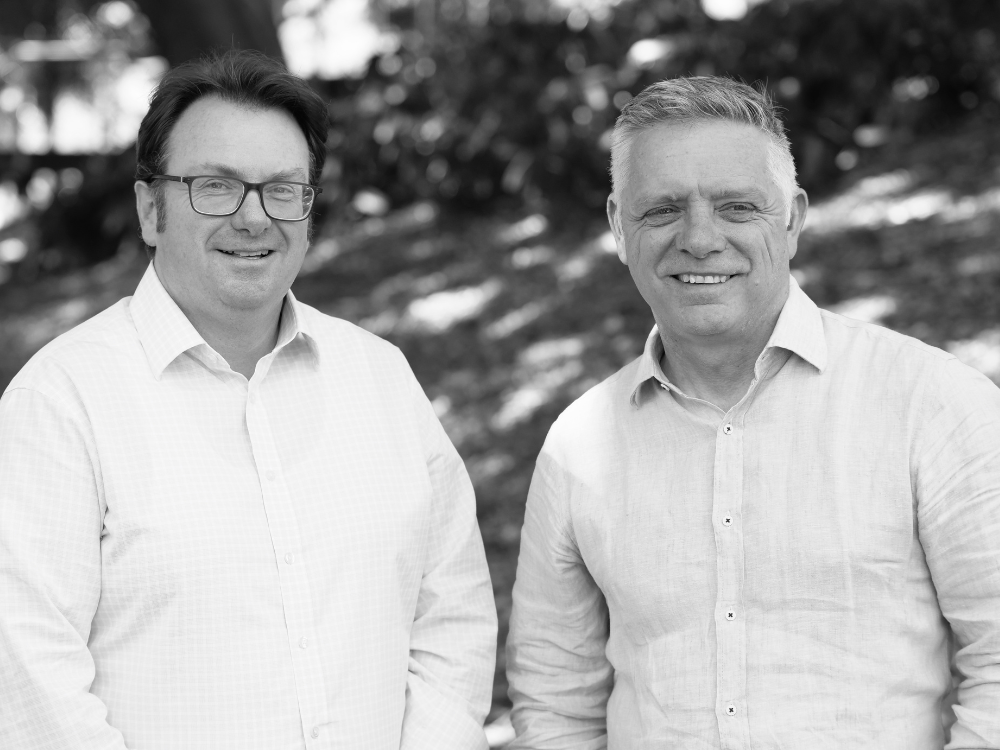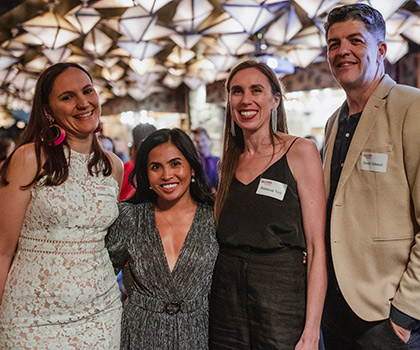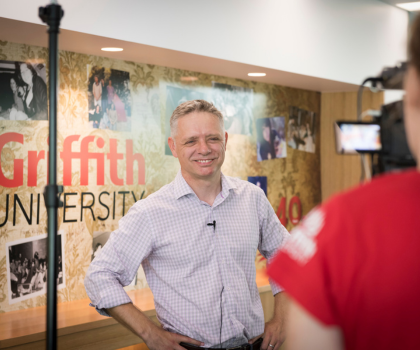
Nick was the MBA Director for several years and continues to be the Course Convenor of Sustainability and Systems Thinking, a core course of the MBA program. In this interview, Nick gives us a glimpse of the book he co-authored with Professor Chris Fleming. He also reflects on his leadership of the program and shares advice for future and current students.
Congratulations to Chris Fleming and yourself for publishing Future Normal: 8 Questions to Create Businesses Your Children will be Proud Of. Can you share an overview of the book? What can readers expect?
The book is designed for leaders who think about legacy and wanting to ensure their legacy is positive. Consequently, within the bones of the book is stewardship and thus readers of the book will be better enabled to lead their business towards long-term value. In reading the book, the reader will find it has depth, but is approachable, with the academic language toned down. Readers have highlighted that it reads as if they are in conversation with us, which is fabulous feedback.
What initially sparked you and Chris’ interest in exploring the concept of legacy, especially in the context of business leadership?
It's always been there, it's part of who we are. It's there because of the reflection that comes from considering one’s purpose and the purpose of business. If we are not trying to enable wonderful societies then I am not sure what we are doing. However, business theory has missed this point and Chris and I have been working to try and change the conversation. The book is another tool we are using to try and change the conversation.
How did you and Chris develop and refine these eight questions? How have they been tested with industry?
The questions have been developed and refined over a decade or more through our work with students and industry. We initially started with many more than eight but refined the number down through the sage advice of an editor. The exact wording of the questions was designed to collapse psychological distance and drive action.
Can you share your favourite excerpt from the book?
That’s tough to answer, but here is the opening paragraph – it’s a useful cheat for those who might not want to read the whole book.
‘This book, like all books, is caught between narratives. One narrative concerns why the book was written (the story outside the covers), another the narrative that exists between the covers (the one you will hopefully read), and then there is a narrative that results from you having read the book (the story you will tell). This preface is an attempt to explain why this book was written. The simple answer is that we would like business leaders to be more ambitious. We would like them to view their businesses not as ends in and of themselves, but as tools that can enable great outcomes for all. We may well be in an era where some of our most clement times are behind us. The forecasts of the future, which science has enabled, indicate that those who come after us are going to face significant challenges. This is not a good gift to pass to the next generation, especially when many of us consider ourselves as leaders who want to leave a positive legacy. Hence, there is a need to do things differently. At the core of this book are eight questions that, in our view, are necessary to enable your business to start shifting towards the Future Normal, a future where businesses act meaningfully in their surroundings and purposefully to benefit themselves and society.
As you note the questions, they may appear to you as now radical. Our contention is that they will become Future Normal. History indicates that the now radical has always been a portend to the Future Normal, be it those once radical movements that helped create paid holiday leave, or a forty-hour working week, or health and safety measures in the workplace. Or the once radical movements that agitated for a woman’s right to vote, equal pay, gay marriage, civil rights and so forth. Our Future Normal depends on the now radical.’
You are a Course Convenor for Sustainability and Systems Thinking (7920IBA). What can students expect from this course in terms of their learning experience?
I have been delivering this course for over a decade now. The feedback I get tells me that students find the course challenges them because it asks them to look past the obvious and consider business more deeply. Hence, I will keep aiming for that, so students can see both the full spectrum of possibilities with business.
How does this course adapt and evolve to address emerging trends and challenges?
I have the joy of working with inspiring students, industry partners and academics – all colleagues. Students often find it strange that I refer to them as colleagues, reinforcing how we co-create the class together.
Every time I deliver the course, I update the content slightly or change the emphasis. I keep notes on all the suggestions and comments I get. With luck I will get the opportunity to deliver the course for a few more years. It will keep evolving!
You were the MBA Director for the University’s MBA Suite for several years. What was the most rewarding aspect of this role?
I was MBA Director from 2012 to 2015, that was a fun time. My first task was to conduct a strategic review of the program, my recommendation was that it pursue sustainability as its core focus – not a surprise to those that know me. People challenged that approach, but I persisted.
Consequently, the most rewarding aspect of that role is how the program is now and how under Professor Stephanie Schleimer’s leadership it has become number one in the world for four years running in being best for planet. That’s an amazing testament to the work Stephanie has done, that is rewarding.
In your opinion, what are the most important qualities and skills that students need to succeed in the Griffith MBA program?
Curiosity and humility. Keep hold of those two and your studies will be a breeze, and leadership will be even easier.
If you have a question for Nick, we encourage you to connect on LinkedIn.
You may also like

Meet "The Breakfast Club"
These students participated in PwC’s Future Solvers case competition, which took a deep dive into the big issues of the nation’s future. Find out about our students’ experience and the innovative solutions they developed.

Meet MBA Student, Shibani Talashilkar
As a Senior Design Manager at Diriyah Company, Shibani oversees design projects, ensuring they align with the company's vision for sustainability and cultural preservation. In this interview, she talks about the exiting opportunities that Saudi Arabia presents and shares how she is progressing with her MBA studies.

Meet Academic, Professor Nick Barter
Nick was MBA Director for several years and currently teaches into the MBA program. In this interview, Nick reflects on his leadership of the program, gives us a glimpse into the book he co-authored, and shares advice for future MBA students.